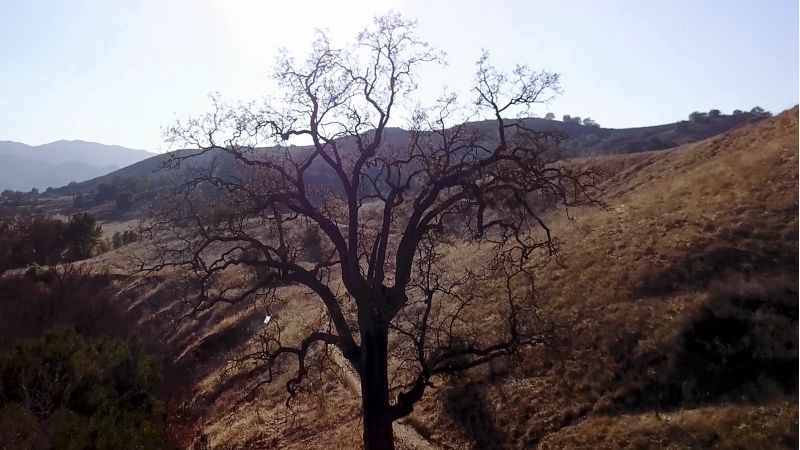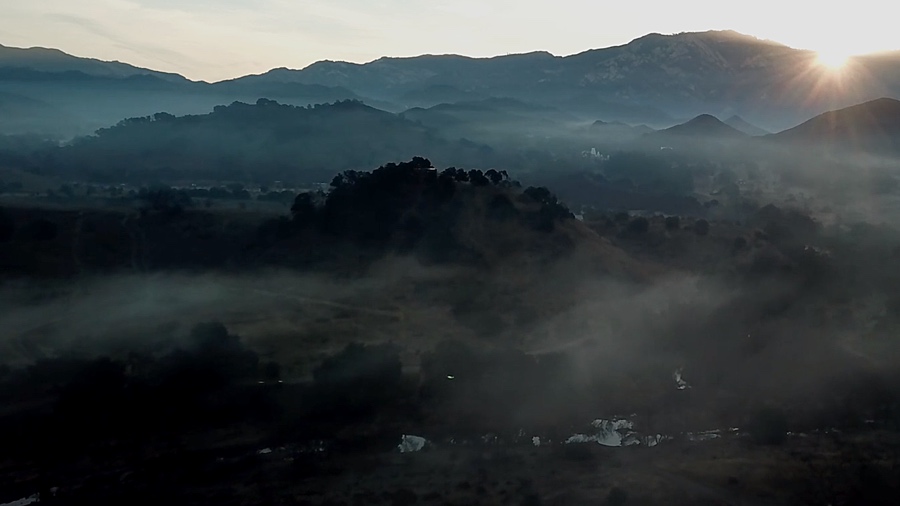..................................................
Jesus And Recent Creation
Did Jesus Teach Recent Creation?
BY HENRY M. MORRIS, PH.D. *
Editor’s note:
Despite the decade since this article’s initial publication, its timeless
message stands: Perhaps the single most important reason to believe in recent creation
is the fact that Jesus Christ believed in it.
Most everyone has
been taught all through their school years that the earth, life, animals, and
man have all been developing from primordial beginnings over billions of years
of natural evolution.
Many have tried to “baptize” this process, so to speak, by
calling it “theistic evolution” or “progressive creation,” saying that God
may have used evolution as His process of creation.
Because of this ubiquitous
indoctrination, even many evangelical Christians have felt they must conform to
this evolutionary worldview, especially in relation to the so-called deep time
that is so essential to evolutionism.
One respected leader of the Intelligent
Design (ID) movement, for example, recently wrote to me that he would prefer to
believe in a young earth but that science had proved the earth was very old, so
he had to go with science.
Two other leaders of this ID movement
told me personally on two separate occasions that they could not even afford
to listen to my arguments for a young earth because they were
afraid they would be convinced and that this would halt their opportunities to
speak to college groups and others about Intelligent Design.
So I have written this brief article
to show once again that the Lord Jesus Himself believes in recent creation and
the young earth.
Assuming that a Christian is
a person who believes in the deity and inerrant authority of Christ, it would
seem that this fact alone should be sufficient to convince him.
What I will do
here, therefore, is list three key reasons for concluding that our Lord Jesus
Christ believed and taught literal recent creation of all things essentially
instantaneously by the omnipotent command of God, who “spoke, and it was done” (Psalm 33:9).
1. The Bible nowhere allows
for long ages.
One can search the
Scriptures (see my book Biblical Creationism for proof)
from beginning to end without finding even a hint of evolution or long ages.
To Jesus, every “jot or one tittle” of Scripture was
divinely inspired (Matthew 5:18), and He warned us severely against
adding any other words to it (Revelation 22:18).
The Bible,
therefore, would certainly not leave the vital doctrine of creation open to
human speculation.
2. The Bible explicitly states how
and when creation took place.
Although many
evangelicals have long equivocated as to the meaning of the “days”
of creation, this type of ad hoc
handling of Scripture is never justified in the context, and Christ Himself
would never have interpreted them as indefinite ages of some kind.
Not only is “day”
(Hebrew yom) defined in
this context the first time it is used (Genesis 1:5), but the writer conclusively restricted its interpretation to
the literal meaning by numbering the days (“first day,” “second day,” etc.) and
by indicating their boundaries (“evening and morning”), both of
which restrictions elsewhere in the Old Testament limit the meaning to literal
days.
The question seems to be even more firmly settled when God wrote
with His own finger that “in six days the LORD made the heavens and
the earth, the sea, and all that is in them, and rested the seventh day.
Therefore the LORD blessed the [seventh] day and hallowed it” (Exodus 20:11), thereby basing our calendar’s seven-day week on this primeval
creation week.
Jesus referred to this divine example when He said that “the
Sabbath was made for man” (Mark 2:27) to meet our weekly need of rest from work.
3. The Lord Jesus recognized that
men and women existed right from the beginning.
The current opinion
is that the cosmos evolved about 16 billion years ago, the earth about 4.6
billion, primitive life perhaps two billion, and human life about one million
years ago.
The Lord Jesus, on the other hand (who was there,
having Himself created all things - note John 1:1-3), taught that men and women were made essentially at the same
time as the cosmos itself when He said that “from the beginning of the
creation, God ‘made them male and female’” (Mark 10:6).
On another
occasion, speaking especially of Adam’s son Abel, He referred to “the
blood of all the prophets which was shed from the foundation of the world”
(Luke 11:50-51), thereby acknowledging that Abel was
the first prophet, martyred in the very first generation - not 4.6 billion
years after the formation of the earth.
Jesus also said
that Satan, using Cain to slay Abel, “was a murderer from the beginning” (John 8:44).
Note also that the
father of John the Baptist, prophesying when filled with the Holy Spirit, said
that God’s holy prophets had been predicting a coming Savior “since
the world began” (Luke 1:70).
Then the apostle
Peter later preached that the second coming of Christ and the ultimate removal
of the great Curse on the earth had even been events that “God has spoken by the mouth of
all His holy prophets since the world began” (Acts 3:21).
The apostle Paul
wrote that evidence of God as Creator should have been “clearly seen” (by men,
of course) ever since “the creation of the world” (Romans 1:20).
There can be no
reasonable doubt that Jesus was what evolutionists today (both theistic and
atheistic) would call a “young-earth creationist.”
It would seem that this should settle
the question for all true Christians, who should certainly - on the authority
of Christ Himself - completely reject the notion of vast geologic ages.
But they don’t! For one thing, not
all who consider themselves Christians really believe the Bible, especially its
unpopular teachings.
Unfortunately, many who think they
are Bible-believing Christians have become adept at “twisting” the Scriptures (note 2 Peter 3:16-17), even the recorded words of Jesus and the apostles, to make them
conform to the scientism of evolutionary speculation.
As noted above, there is not the
slightest suggestion of millions and billions of years anywhere in the Bible
when it is taken simply to mean what it says.
That is why we young-earth
creationists have to keep on reemphasizing the pervasive Bible teaching of
just thousands of years of Earth and cosmic history.
But what are we supposed to do when
the Bible disagrees with the majority of scientists on such matters?
We are to believe the Bible - that’s
what! When the teachings of men conflict with the Word of God, it would be wise
to go with God.
Furthermore, there are now thousands
of scientists, fully credentialed with post-graduate degrees from accredited
universities, who have become convinced believers in recent creation.
No doubt we are still a minority, but
it is a growing minority.
There is also a rapidly growing body
of scientific data that not only shows the impossibility of macroevolution but
also much that repudiates the so-called evidences of billions of years.
Creationist geologists have been
developing an abundance of evidence of global catastrophism instead of
uniformitarianism in Earth history - thus confirming the biblical record of the
great Flood as the major explanation for the fossil-bearing rocks in the
earth’s crust, instead of having to invent imaginary long ages of evolution to
account for them.
It is possible now even to amass a
list of dozens of worldwide natural processes (e.g., accumulation of salt in
the sea) which, even on uniformist assumptions, will yield ages much too brief
for evolution.
Thus, even without referring to the
Bible at all, it is possible to make an impressive case for recent creation.
One cannot determine the exact age of
the earth by science, of course, and these various processes may yield various
values, but all prove too small for evolutionism to be possible.
With the supposed exception of
radiometric dating, that is.
The decay of uranium into lead,
rubidium into strontium, and a few other such processes can be made to show
extremely long ages, so radioactive decay processes have been considered by
evolutionists to be firm proof of the billions of years.
But Christians need to remember that
such calculations, like all the others, are based on the arbitrary assumption
of uniformitarianism, which not only is unprovable but contrary to the Bible.
The apostle Peter
calls it “willing ignorance” (note 2 Peter 3:3-6, KJV) when this assumption ignores the world-changing impact of
special creation of all things in the beginning and the worldwide geologic
impact of the global Deluge in the days of Noah.
Furthermore, the publication of
the ICR/CRS RATE Initiative shows strong
scientific evidence that even these radioactive decay processes really provide
convincing arguments that the earth is thousands
of years old - not billions!
Therefore, we plead once again with
our Christian theistic evolutionists, progressive creationists, gap
creationists, and Intelligent Design minimalists to come back to the Bible for
their view of the world and its history.
We should most
certainly believe the words of our Lord Jesus Christ on this vital subject. “But
why do you call Me ‘Lord, Lord,’” He might well say, “and
[believe] not the things which I say?” (Luke 6:46).
Adapted from Dr.
Morris’ article “Did Jesus Teach Recent Creation?” in the June 2005 issue
of Acts & Facts.
* Dr. Morris
(1918-2006) was Founder of the Institute for Creation Research.


 1 Sitting at the feet of
Jesus,
1 Sitting at the feet of
Jesus, 2 Sitting at the feet of
Jesus,
2 Sitting at the feet of
Jesus, 3 Bless me, O my Savior,
bless me,
3 Bless me, O my Savior,
bless me, So often in ministry, the Lord deals with my own spirit, saying – "You need to step back and get refocused!"
So often in ministry, the Lord deals with my own spirit, saying – "You need to step back and get refocused!" This morning I was re-reading the story of Mary and Martha, and how Mary chose the better part, while Martha was doing the housework.
This morning I was re-reading the story of Mary and Martha, and how Mary chose the better part, while Martha was doing the housework.

 Why did this brokenness, this pain, this
shattering, come upon us if it is not God's intention for us?
Why did this brokenness, this pain, this
shattering, come upon us if it is not God's intention for us?
